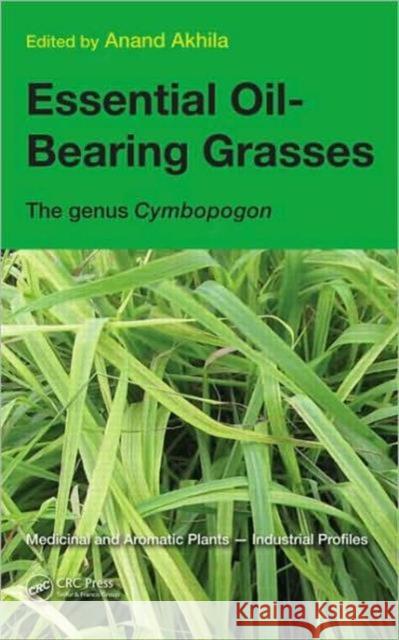Essential Oil-Bearing Grasses: The Genus Cymbopogon » książka
Essential Oil-Bearing Grasses: The Genus Cymbopogon
ISBN-13: 9780849378577 / Angielski / Twarda / 2009 / 262 str.
Essential Oil-Bearing Grasses: The Genus Cymbopogon
ISBN-13: 9780849378577 / Angielski / Twarda / 2009 / 262 str.
(netto: 879,04 VAT: 5%)
Najniższa cena z 30 dni: 856,36
ok. 16-18 dni roboczych.
Darmowa dostawa!
When enjoying a southeast asian soup or cup of herbal tea, we are really savoring the flavor of lemongrass. Similarly, the sweet aroma of mosquito-repelling lotions comes from the citronella oil present in them. Fine perfumes, candles, and herbal pillows with the pleasing smell of rose are often in fact scented with palmarosa. Providing an in-depth look at their history and production, Essential Oil Bearing Grasses: The genus Cymbopogon provides a comprehensive review of these economically important grasses. A detailed examination of chemical constituents and market trends, the book explores the cosmetic, medicinal, and nutritional uses of the plant. It covers the botany, taxonomy, chemistry, and biogenesis of the oils, and their extraction and analytical methods, biotechnology, storage, legislation, and trade. Highlighting industrial uses for the grasses in this genus, the book also includes coverage of the physiological and ecophysiological considerations. It presents a comprehensive overview of most of the cultivated and wild species of cymbopogons. Featuring contributions from a team of international experts, the book describes the considerable ethno-botanical, phytochemical, and pharmacological knowledge associated with the multidimensional uses of the oils. It provides a complete industrial profile that includes market size, geographical sources, export and import data, and industry uses. Its pages offer an invaluable resource for research, cultivation, marketing, or product development of Cymbopogon.
Essential oil bearing or aromatic grasses, such as lemongrass and citronella, are used widely across the world in perfumes, soaps, candles, and incense, as well as for flavoring in teas, soups, and curries, and on poultry and fish. Providing an in-depth look at the history and production of those scented grasses, Essential Oil Bearing Grasses: The genus Cymbopogon is the first comprehensive review of these economically important grasses. Examining both chemical constituents and market trends, the book explores the cosmetic, medicinal, and nutritional uses of the plant. Its pages offer an invaluable resource for those actively engaged in the research, cultivation, marketing, or product development of Cymbopogon.











